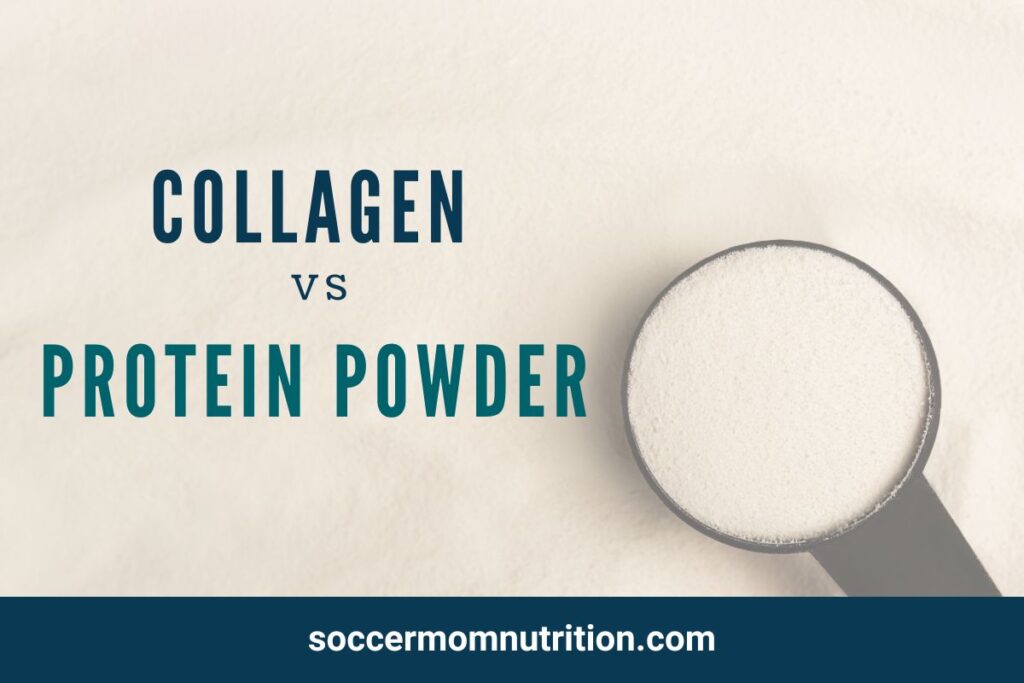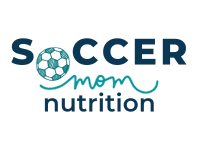Collagen vs Protein Powder: Which One Should You Take?
You have probably heard of collagen and protein powder, but do you know the difference between them and which one is better?
If you are looking for ways to boost your performance, recovery and health, you might be wondering whether collagen vs protein powder is the right choice for you.
In this blog post, we’ll compare collagen and protein powder and help you decide which one would help you meet your sports nutrition goals.

What is collagen
Collagen is the most abundant protein in your body. It is found in your skin, hair, nails, bones, joints, muscles and organs.
It gives structure and strength to your tissues and helps them heal and regenerate. Collagen also plays a role in keeping your skin hydrated and elastic.
Collagen is made of amino acids, which are the building blocks of proteins. However, collagen is not a complete protein source, meaning it does not contain all nine essential amino acids that your body cannot produce on its own.
One of the missing amino acids is tryptophan which is important for your mood regulation and sleep quality. It also plays a role in supporting appetite regulation.
What is protein powder
Protein powder is a supplement that provides concentrated protein from various sources, such as whey, casein, soy, pea or vegan protein powder. It can be a complete or incomplete protein source, depending on the ingredients and the processing methods.
Taking protein powder can help you meet your daily protein needs, especially if you are on the go and can’t always eat a regular meal. However, it’s always best and you can usually meet your protein needs through whole foods.
Protein powder can support muscle protein synthesis, growth, strength, recovery and performance. It can also help you feel full longer and slow digestion.
Collagen vs protein powder: which one is better for you
The answer to whether collagen vs protein powder is better for you depends on your goals and preferences.
Here are some factors to consider when choosing between collagen and protein powder:
Quality: Both collagen protein and protein powder can vary in quality depending on the source, processing and purity.
You should look for products that are tested by third-party labs like NSF, Informed Choice or Informed Sport for safety and potency.
You should also check the label for any additives, fillers, proprietary blends, artificial sweeteners, monkfruit, stevia or allergens that you want to avoid.
Taste: Collagen powder is usually tasteless and odorless, which makes it easy to mix with any liquid or food.
Protein powder can have different flavors and textures depending on the ingredients and sweeteners. Some people may prefer the taste of protein powder over collagen powder, while others may find it too artificial or bitter.
Benefits: Collagen powder can provide specific benefits for your skin, hair, nails, joints and bones. It can also help with wound healing and skin health (1).
Protein powder provides general benefits for your muscles, metabolism and overall health.
Dosage: Most collagen supplements have a suggested daily dosage of 2.5 to 15 grams. However, collagen benefits for athletes is typically seen at 15 grams combined with 50 mg of vitamin C. (2)
You can take collagen powder by mixing it with any liquid or food. Some studies suggest that taking collagen before bedtime may enhance its effects on skin elasticity and hydration.
Most protein supplements have a suggested daily dosage of 20 to 40 grams. You can take protein powder by mixing it with water, milk or plant-based beverages.
Some studies suggest that taking protein after exercise may enhance its effects on muscle growth and recovery. (3)
How to get the most out of your collagen or protein powder
If you decide to take collagen or protein powder as a supplement, here are some tips to make sure you get the most out of them:
Combine collagen with vitamin C: Vitamin C is an essential nutrient for collagen synthesis and skin health. Vitamin C also acts as an antioxidant that protects your body against damage caused by free radicals.
You can get vitamin C from fruits and vegetables like oranges, strawberries, broccoli and peppers. You can also add some vitamin C-rich foods or supplements to your collagen drink or smoothie.
You’ll want to add 50 mg of vitamin C to 15 grams of collagen (4)
Take collagen before exercise: Some research suggests that taking collagen about 45 minutes before exercise may improve joint health and reduce pain in athletes. (5)
This may be because collagen can stimulate the production of fluid in the joints, which helps your joints move better. Taking collagen before exercise may also help with muscle repair and recovery after exercise.
Choose a high-quality protein powder: Not all protein powders are created equal. Some may have low-quality ingredients, artificial sweeteners or contaminants that can harm your health.
Also avoid protein powders with proprietary blends as these may not contain a high content of the ingredients you expect to see.
Whey protein isolate is a preferred animal-based proteins given its high protein content, while soy protein isolate is preferred among plant-based proteins.
Take protein after exercise: Taking protein after exercise can help your muscles recover faster and grow stronger. This is because exercise causes micro-tears in your muscle fibers, which need to be repaired by amino acids from protein.
Taking protein after exercise can also prevent muscle breakdown and promote muscle synthesis. The optimal amount of protein to take after exercise depends on your body weight, but a general recommendation is 0.25 grams per kilogram
Conclusion
Collagen and protein powder are both popular supplements that can offer different benefits for young athletes. Collagen can support your connective tissues, bone and skin health, while protein can support your muscle mass and performance.
Depending on your goals and preferences, you may choose one over the other or combine them in your diet. However, before taking any supplement, you should consult with your doctor or sports nutritionist to make sure it is safe and suitable for you.
Stephanie Magill, MS, RD, CD, FAND has over 22 years of experience in public health and nutrition. As a performance registered dietitian nutritionist, Stephanie specializes in sports nutrition and provides simple and actionable information so that athletes can be well fueled for high performance on and off the field. Stephanie has a Master’s Degree in Nutrition and is a Fellow of the Academy of Nutrition and Dietetics.

